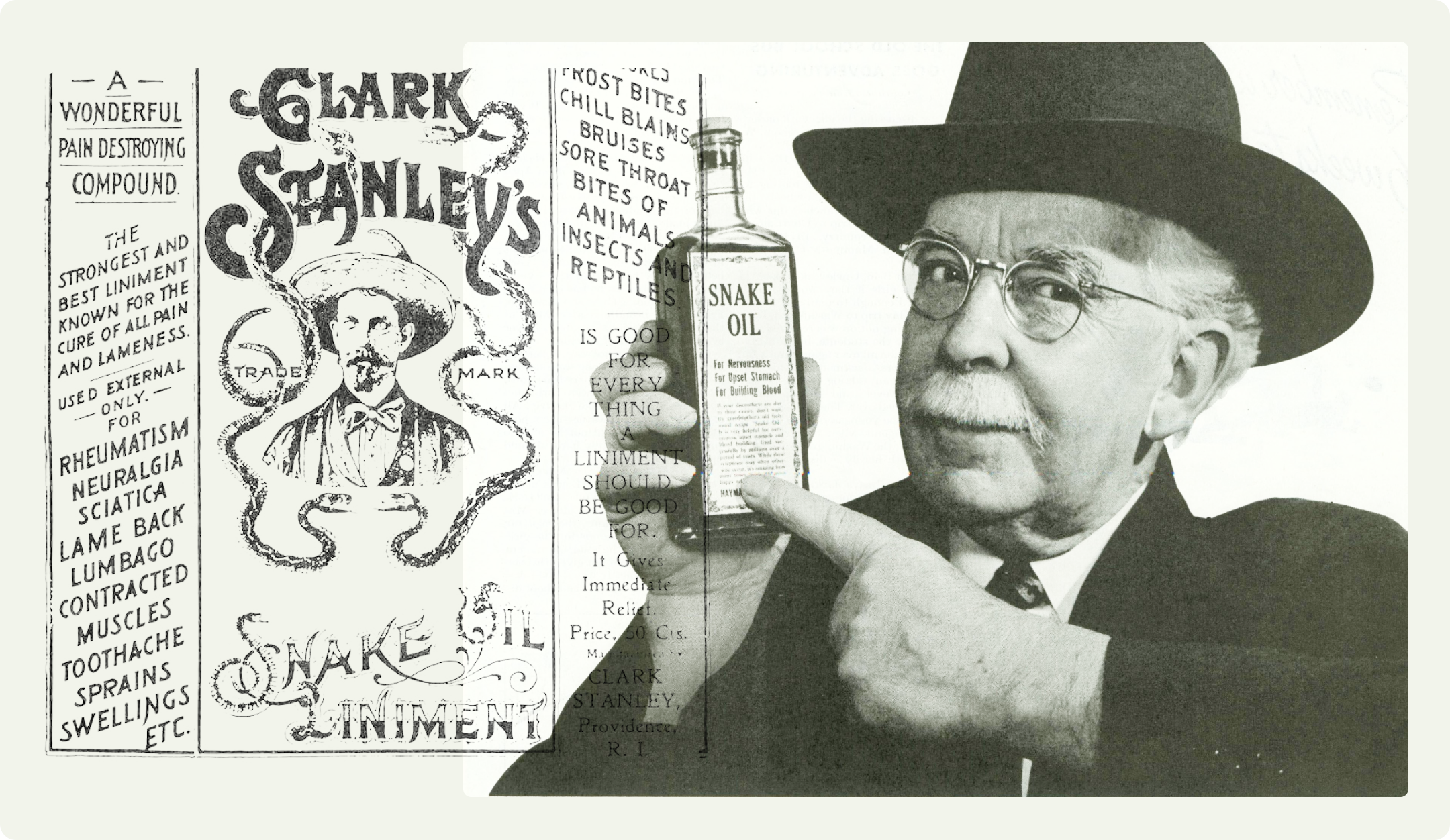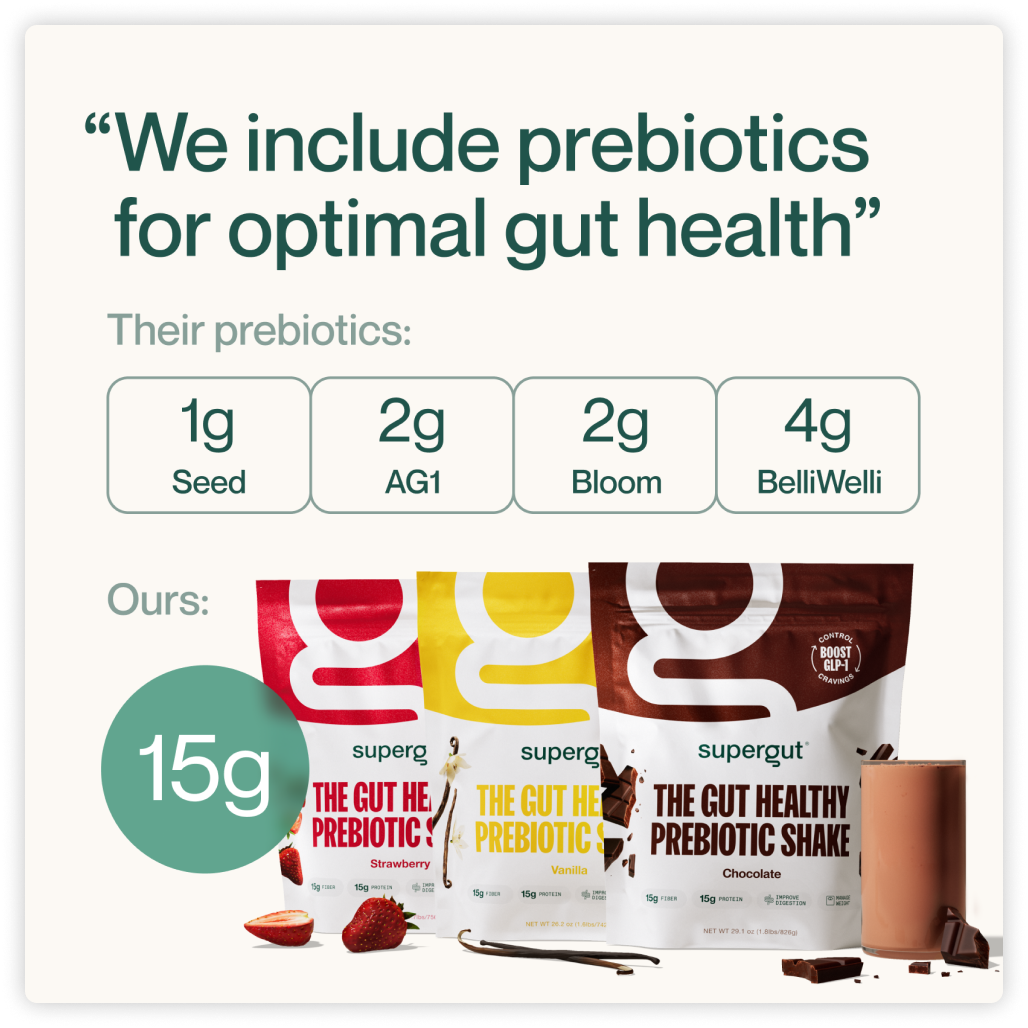Exaggerated claims in wellness marketing have been around forever—from radioactive elixirs to literal snake oil. Unfortunately, dubious health claims are still everywhere these days and spotting them can be a science in itself. Here’s how.
Scienceploitation of Wellness
The modern form of scienceploitation—i.e., when brands borrow language from emerging science to promote products without much actual science behind them—can take three forms:
- Using buzzwords like “research-backed” and “doctor-recommended” with little context about the quality of the research or which doctors.
- Making squishy promises such as “can help with” and “may support” without any quantifiable evidence.
- Listing trendy ingredients on the front of labels, with minimal traces appearing on the back.

How Is This Allowed?
Technically, it isn’t. In December 2022, the FTC revised its guidelines for health products, determining that brands should support their claims “with high quality, randomized, controlled human clinical trials.”
Trouble is, there are too many brands to monitor. Specialty food & beverage is a $207 billion industry with about ~4,000 businesses selling more than 100,000 products across a largely unregulated industry.
Just look at your local grocery store aisle. Potato chips are labeled “heart healthy.” Protein bars have more sugar than candy. Premade smoothies have 0g fiber despite being “made with real fruit.”

Evaluating Gut Health Claims
As a gut health brand, we take claims in this space particularly seriously. So, what should you look for when evaluating products specifically marketed as “good for your gut”?
- Prioritize Prebiotics
The reality is that most probiotic supplements are ineffective and so the better approach is getting them through foods like yogurt and kimchi. However, all those beneficial microbes in your gut still need nourishment and that’s where foods high in prebiotics like fiber come in. - Doublecheck Dosage
If a brand claims to be gut healthy or have prebiotic benefits, but the product has anything less than 5g of fiber per serving, then it’s probably safe to assume their health claims are exaggerated. Remember, you need at least 25-30 grams of fiber per day for optimal gut health. - Scrutinize the “Science”
Sometimes brands claim clinical-evidence by citing third-party studies indirectly linking certain ingredients. The problem is, format and dosage can have huge implications for bioavailability and potency. So instead, ask if they have direct clinical-validation of their products themselves.

Take Supergut, for example. In a 12-week trial, we put our products to the test in a placebo-controlled—and since peer-reviewed—study to show that the cohort who consumed Supergut daily lowered their blood sugar, lost weight, and measurably improved key indicators of metabolic & digestive health.
Final Word
Misleading marketing isn't going away anytime soon, but as savvy consumers wise up to their tricks, expect to see a shift in how brands approach their health claims. For scientifically-proven products that genuinely deliver on their promise of improved digestive health and metabolism, use code GUTCHECK at checkout for 20% off.








